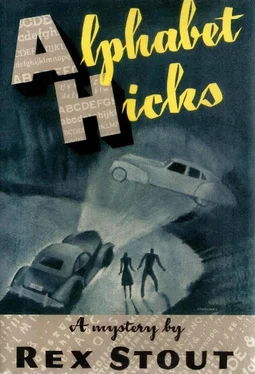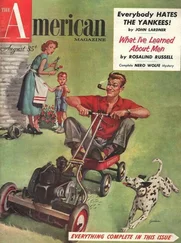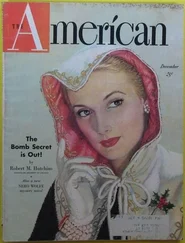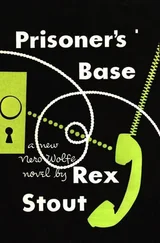It certainly was not Mrs. Dundee. She was something more than half Mrs. Dundee’s age, but not much. She was fair, extremely fair; and when her glance, leaving the clock, rested on Hicks’s face for an instant, his eyes dropped, away from the pain and distress in hers. It came her turn at the window and she spoke through the grill:
“Round trip to Katonah, please. There’s a train at one-eighteen, isn’t there? Track twenty-two? Thank you.”
It was the voice he had heard in the restaurant. Hicks stared incredulously at the back of her head. The resemblance to Judith Dundee’s voice was startling, little short of amazing. Even so, that might be dismissed as none of his business, as merely one of nature’s rare slips in her monumental task of differentiating two billion two-legged creatures one from the other; but what about Katonah? She was going to Katonah!
That was too much. When she had moved away he bought a ticket to Katonah, hurried to the track entrance, and reached the platform in time to see her enter a coach. Inside he took a seat behind her, three seats removed from hers, and presently the train started. She had removed her hat and neckpiece, and he could see the back of her head. It was a well-shaped head, and her hair was fair and soft-looking...
Beyond White Plains the train was a local, and the ride consisted mostly of jolts, stops, starts, and more jolts, but at least it kept to schedule, and Hicks’s watch told him it was 2:39 when the trainman opened the door and called Katonah. He followed the quarry down the aisle to the vestibule, descended at her heels, and paused to light a cigarette as she looked uncertainly around. Three cars were backed up to the platform extension, with men standing by them calling “Taxi!” and she headed for one. Hicks was there close enough to hear when she spoke to the driver:
“Dundee’s? On Long Hill Road? Do you know where it is?”
The driver said he did, and opened the door for her, and they were off.
Hicks felt his blood moving. That was totally unreasonable; the mere fact that a woman whose voice resembled Judith Dundee’s was bound for Dundee’s laboratory brought home no bacon; but it was not reason that pumps blood. He addressed another driver standing there:
“If I’d been quicker on the trigger that lady might have been willing to save me a quarter. I’m going where she is.”
“You’d have saved more than a quarter, brother. It’s three miles. One buck. Hop in.”
Hicks got onto the front seat with him. As they rolled away from the station the driver asked, “Which do you want, the house or the laboratory?”
“Why, is there a house?”
“Sure there’s a house.” The driver explained, as one who likes to explain, encouraged by questions. The people who worked in the laboratory — Mr. Brager, young Dundee, and Miss Gladd — lived in the house. Likewise Mrs. Powell, who looked after the house. The outside man didn’t live there.
“Was that Miss Gladd who got off the train?”
“Her? No.”
“Who was it?”
“Don’t know.” He slowed the car, which had been speeding along the highway, swung it sharply to the right onto a narrow graveled road, and accelerated. “Never saw her before that I remember.”
A little farther on the car had to swerve onto the grass to meet and pass the other taxi, returning, and in another minute it slowed to a crawl as it approached an entrance to a drive on the right.
“Here’s the house,” the driver announced. “The drive goes on around some woods to the laboratory—”
“This will do.” Hicks climbed out, got rid of a dollar, and stood there while the car backed, got turned, and sped off in dust. Then he walked up the curving drive toward the house.
The age of the trees and shrubbery showed that the place was an old one, but the house had been modernized. Instead of a covered porch in front there was a flagged terrace open to the sky, the walls were stucco with a plain trim of a greenish material which Hicks suspected of being a Dundee plastic, and the windows had metal casements. No one was in sight. Hicks pushed the button beside the door, and when it opened and a florid-faced woman appeared, he asked for Mr. Brager.
“He’s over at the laboratory.”
“How do I get there, by the drive?”
“You’ve got a car?”
“Taxi. I sent it back.”
“Then it’s shorter this way.”
She bustled out to show him, off to the left, where at the edge of the lawn a path entered a strip of woods and undergrowth, and he thanked her and made for it. In the woods was a cool damp smell, and he had gone not more than forty paces when he came to a little bridge over a brook. That stopped him. There were not many things in life that he ever felt the need of, but among the few people who knew him well it was notorious that he needed a brook. He had, off and on, here and there, looked at dozens of brooks. Now he halted on the bridge and looked at this one, and listened to it. His thoughts, however, for the minutes he stood there, were more ironic than idyllic. The aimlessness of the brook was only apparent; his own aimlessness in following that voice...
“Looking for somebody?”
The footsteps on the soft dirt path, not yet carpeted with autumn leaves, had not been audible. Hicks whirled, startled, and was looking at a young man clad in soiled white coveralls, hatless, with sober bluish-gray eyes set deep in a bony but well-arranged face.
Hicks nodded and moved on off the bridge. “I’m looking for Mr. Brager.”
“He’s at the laboratory. I doubt if he can see you — we’ve got the furnace going.” The youth stepped onto the bridge and turned back. “I’m Ross Dundee, his assistant. Will I do?”
“I don’t believe so. It’s just a little personal matter.”
“Righto.” He was off the way Hicks had come.
Hicks went on. In another hundred yards or so the path emerged from the woods, and there, across a small meadow, was a low unadorned concrete building flanked by two venerable oaks. He approached. A graveled drive extended the length of the front and curved around either corner, evidently encircling it. From open windows came a low steady hum as of a gigantic motor. Toward the left was a door, and since no push button was there, Hicks turned the knob and entered.
No space was wasted on a hall. This, evidently, was the office, a medium-sized room which at first sight made you blink on account of the riot of colored plastics. There was a purple desk, a row of blue filing cabinets, a mottled gray and yellow table covered with an assortment of gadgets, and chairs of all colors; and at another desk, that one pink, with a green typewriter and a red microphone perched on it, a girl sat crying.
The scene was altogether so chaotic as to be grotesque, with the subdued hum of machinery from beyond walls providing a background like the rumbling of a dragon from the depths of a cavern — but it had competition from another dragon. Though no man was visible, a man’s voice filled the room, uttering strident and mysterious incantations:
“Six eighty-four! Twelve minutes at five one oh, nine minutes at six three five! Vat two at three-ten, less tendency to streak and more uniform hardening! Shrinkage point oh three millimeters...”
And the girl sat with her fingers dancing on the keys of her typewriter, typing away like mad, while tears ran down her cheeks and made dewdrops on both sides of her chin. Hicks gazed at her in consternation. Suddenly the man’s voice stopped, and immediately the girl, peering through the tears at the sheet in her machine, read off what she had typed into the red microphone. She spoke clearly and distinctly, stopping twice to catch her breath with spasmodic gasps.
Then the subdued humming dragon had the field.
Читать дальше












